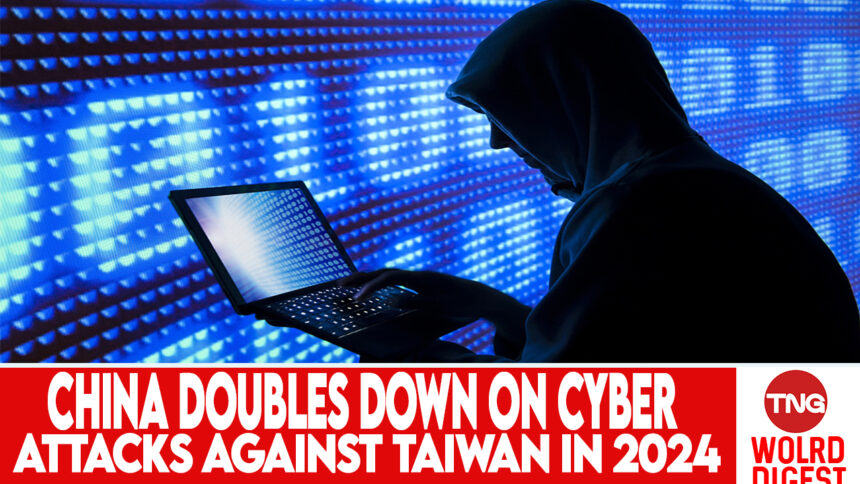Today, we’re looking at a dramatic escalation in the cyber battlefield: China doubled down on its cyberattacks against Taiwan in 2024. What’s driving this digital aggression, and how is Taiwan fighting back?
According to Taiwan’s National Security Bureau (NSB), Chinese hackers were involved in most cyberattacks against Taiwan last year, doubling to a daily average of 2.4 million from 1.2 million in 2023.
China regards Taiwan as part of its territory and, for years, has been ramping up military, diplomatic, and political pressure on the island to accept its claims of sovereignty.
These cyberattacks are part of China’s broader strategy of “grey-zone harassment,” which includes daily military drills, disinformation campaigns, and other forms of pressure aimed at forcing Taiwan to accept China’s sovereignty claim.
Most of the daily attacks received by Taiwan’s Government Service Network were attributed to China’s “cyber force,” the National Security Bureau said in a report on Sunday.
Defense, telecommunications, and transport were among the top targets, with many of the cyberattacks “effectively detected and blocked,” the National Security Bureau said.
“The growing numbers of attacks pinpoint the increasingly severe nature of China’s hacking activities.”
“Its techniques have become increasingly sophisticated and covered a wide range of targets, such as government agencies, critical infrastructure and high-tech manufacturing industry.”
Chinese hackers carried out Distributed Denial of Service attacks(DDoS) designed to disrupt access to web pages of Taiwan’s transportation and financial institutions when Beijing held military drills near the island, “intending to intensify the harassment effect and military intimidation,” the bureau added.
China staged two rounds of major exercises around Taiwan in 2024 to pressure Taipei, one in May and one in October, dubbed Joint Sword – 2024A and B, respectively. Several countries, notably the United States, have voiced alarm in recent years at what they say is hacking activity backed by Beijing targeting their governments, militaries, and businesses.
However, China has denied all allegations linking them to cyber attacks on the United States, stating they oppose and crack down on all forms of cyberattacks.
What is the way forward? While China’s cyberattacks on Taiwan are a legitimate concern, it’s essential to acknowledge the complexity of the issue. China’s actions are driven by a desire to protect its sovereignty and territorial integrity, while Taiwan’s pursuit of independence is rooted in its unique cultural and historical identity.
A balanced approach is necessary, one that considers both parties’ concerns and seeks to find a peaceful resolution to the conflict. The international community must navigate this delicate balance, supporting Taiwan’s right to self-determination while encouraging China to engage in diplomatic efforts to resolve the issue peacefully. Ultimately, a stable and secure Asia-Pacific region depends on our ability to find a middle ground that respects all nations’ sovereignty and dignity.















